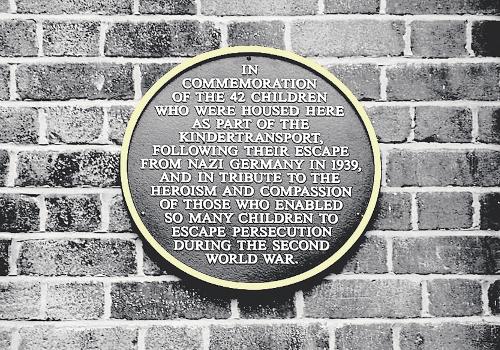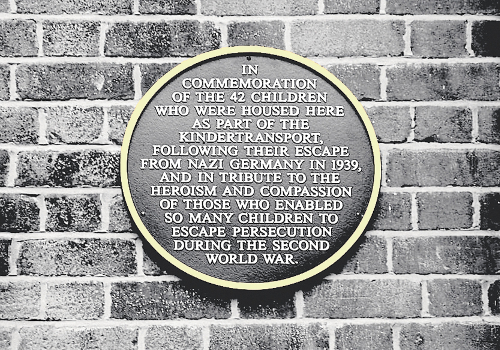
Over a series of meetings last year, Britain’s Quaker community discussed its experience of welcoming newcomers to these shores. Over 51 Quaker Meetings have pledged to become ‘Sanctuary Meetings’, based on a threefold commitment to build a culture of welcome, to challenge racism in all its forms and to change the law.
Quakers are taking action both locally and nationally. They are working in collaboration with policy-oriented organisations to change the law around detention; supporting a group of anti-deportation activists who prevented a deportation flight and who are now on trial on hefty ‘terrorism’ charges; accompanying people through the asylum system; hosting people in their homes; and acting as sureties for people locked up in detention centres. Quakers are committed to oppose racism in all its forms.
Quakerism is the common name for a faith community, the Religious Society of Friends, which grew out of Christianity 400 years ago. Quaker congregations are known as ‘Meetings’.
A national Quaker decision-making body declared in December: ‘We have seen up close that the government’s creation of a “hostile environment” [for undocumented migrants] is increasingly embedding policies of discrimination into the practices of the British state.’
Work to welcome newcomers is by no means new. Among the well-known stories of Quaker history are reports of early Friends (as Quakers refer to each other) fleeing Britain because of persecution in the 17th century; providing refuge for the Amish and other religious minorities in the 18th century; helping staff the ‘Underground Railroad’ which assisted enslaved people to escape the US South in the 19th century; and, in the 1930s, helping Jews and others oppressed by the Nazis flee to Britain through the Kindertransport.
“We have seen that the government’s creation of a “hostile environment” is embedding discrimination into the practices of the British state.”
It is with the benefit of such experience that Quakers know also that the government’s present ‘hostile environment’, which was first part of this government’s political campaign and has now become policy, stands on the shoulders of gigantic injustices perpetrated by the UK government over many years.
This country’s first systematic immigration controls were introduced in 1905. This was as part of the Aliens Act, a law directed against Jewish refugees escaping anti-semitic oppression in Eastern Europe and Russia. The first systematic controls directed against black people came in 1962 with the Commonwealth Immigrants Act, a law designed to limit the number of arrivals from countries ruled or formerly-ruled by Britain. As with the 1905 legislation, racist groups agitated for this.
Aside from the increased freedom of movement enjoyed by EU citizens from the early 1970s, successive UK governments have continued to restrict the entry of foreign nationals, including those forced to flee their homes.
Forced by war
Worldwide in 2016, 20 people every minute were forced to migrate due to war, violence and persecution. 85 percent of forced migrants on the move recounted having witnessed extreme violence. Those fleeing from Afghanistan and Iraq reported at even higher levels.
Research conducted by the Quakers in 2017 showed that more than 50 percent of the people counted by the UN as refugees are from places that have been invaded or ruled by Britain in living memory, rising to 75 percent if Syria – currently being bombed by Britain – is included. In contrast, considerably less than 1 percent of the total population of those classified as refugees by the UN currently live in the UK.
So it is we make the call for Sanctuary Everywhere – including Britain, Europe, North America, and in the countries from which people are escaping. The ongoing crises of economic injustice, war and racism are leading to record levels of human displacement. Just as the causes are multi-dimensional, so too must be our response.
Quakers oppose war and stand for peace. Racism often emerges as a precursor for war, and is stoked and offered justification by the state at times of war. The UK government’s system of discrimination against those seeking sanctuary is a product of racism and war, and has woven a system of inequality and injustice into the fabric of British culture.
To encounter such a wall of injustice may seem at first overwhelming. But for Quakers every act of welcome is an act of faith and an act of peace. All walls fall eventually.
-------------------------------------------------------
Sanctuary Everywhere Manifesto
The following manifesto was agreed in December 2017 by the ‘Meeting for Sufferings’, a national Quaker representative body:
‘As Quakers, we have long worked for peace and equality, because of our belief that there is that of God in everyone, everywhere, whoever they are.
‘Through Quakers’ longstanding work welcoming newcomers to our shores, we have seen up close that the government’s creation of a “hostile environment” is increasingly embedding policies of discrimination into the practices of the British state. Quakers in Britain are committed to working with others to change this, creating a culture of compassion and welcoming hospitality that answers that of God in every person.
‘Our Meeting for Sufferings was born of a response to the government’s systematic discrimination against Quakers in the past. Today we turn that experience into solidarity, and stand against all oppression and suffering. We declare our determination to work for sanctuary everywhere, including here in Britain, by agreeing this Manifesto for change.
- Human rights standards for all should be the foundation on which any national policy or international agreement on migration is founded, and these include the right to work, to learn, to housing, to medical care and to security in the event of adverse circumstances beyond personal control.
- We will campaign for change to the asylum process so that it is built on a culture of compassion and practical response, rather than starting from an assumption of disbelief.
- Within the UK system of immigration detention is institutional violence and discrimination. We oppose indefinite detention, which we believe neither right nor necessary, and will work towards the closure of all detention centres. Other more humane policies are more effective and should be introduced.
- Our belief in every human being’s equality leads us to oppose unjust deportations and removals, whether to the EU or to the wider world.
- The humanitarian risks of trafficking and unsafe passage lead us to work for new, peaceful, safer routes of migration including the introduction of humanitarian visas and improved rules for family reunion.
- To ourselves and wider society, we reaffirm our determination to acknowledge and dismantle discrimination in all of its forms, wherever it is to be found.’


